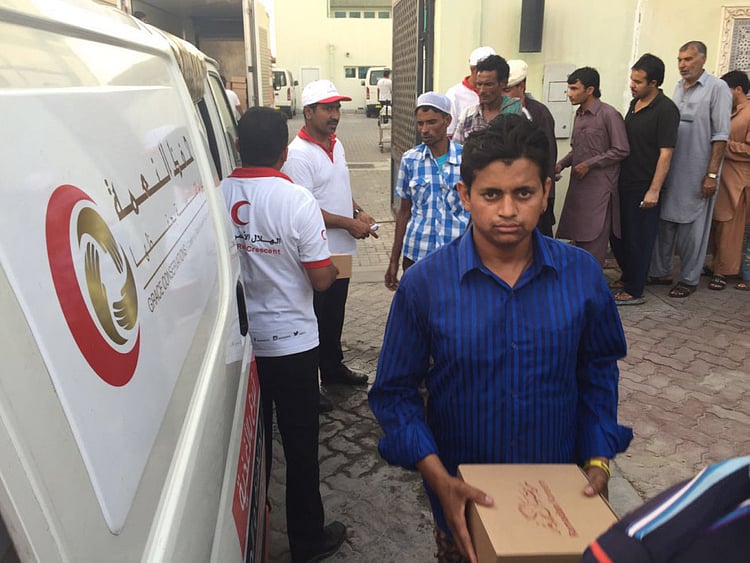Residents warned against distributing meals by themselves this Ramadan
Those wishing to partake in tradition of gifting meals should contact approved charities

Dubai: Residents have been warned against distributing meals on their own during this Ramadan as the practice could pose a public health risk.
The Islamic Affairs and Charitable Activities Department (IACAD) in Dubai has directed residents to suspend such “community practices” this Ramadan, which has come during the time of the coronavirus pandemic.
Gifting, donating or distributing meals to workers or people in the neighbourhood during Ramadan is a tradition followed by many residents. However, due to the ongoing COVID-19 outbreak, residents have been told to limit the practice only through approved charitable establishments, which can be found on the IACAD website, www.iacad.gov.ae.
IACAD director-general Dr Hamad Shaikh Ahmad Al Shaibani said, “The social habits that we grew up with are an important part in the holy month, but this year we were forced to receive this holy month in different ways and means.”
He added that residents’ cooperation in abiding by the instruction to refrain from distributing meals by themselves, will lend support to “all vital sectors, which are working day and night to contain the crisis with a high efficiency to keep the community members health and safety”.
IACAD reiterated the need to instead approach charitable organisations for the purpose, as they are concerned with distributing meals to the segments of society most affected groups by the current situation, under the direct supervision of IACAD that operates according to the approved standards and practices to maintain safety measures.
The latest advisory follows the recent IACAD directive stating that all permits for Ramadan tents this year have been cancelled in line with instructions to contain the coronavirus outbreak. The authority said it is strictly forbidden to bring meals for ending the daily fast to the courtyards of mosques, in order to prevent gatherings.
Remote fatwa programme
The Islamic Affairs and Charitable Activities Department in Dubai launched ‘Yastaftonk’, a fatwa (Islamic rulings) programme remotely through its social media platform during Ramadan. It comes in light of the exceptional circumstances during Ramadan, which has come during the time of the coronavirus pandemic.
Tariq Al Emadi, head of ifta section in IACAD, said, “The fatwa programme is answering the most common questions in the holy month of Ramadan. In a simplified manner and provides access to jurisprudence scholars and their information on fasting issues and its provisions. This programme is to enhance religious awareness through social media platform in less than a minute per episode.”
IACAD muftis (fatwa issuers) will work in shifts in Ramadan to receive call on its number 800 600 from 8am to 8pm in Arabic, English and Urdu.
Al Emadi added that the ‘Status’ feature has been activated to publish fatwas on the WhatsApp number 8003336.
The audience can also listen to the episodes of the programme through IACAD’s Instagram account, @iacaddubai.
Sign up for the Daily Briefing
Get the latest news and updates straight to your inbox
Network Links
GN StoreDownload our app
© Al Nisr Publishing LLC 2026. All rights reserved.